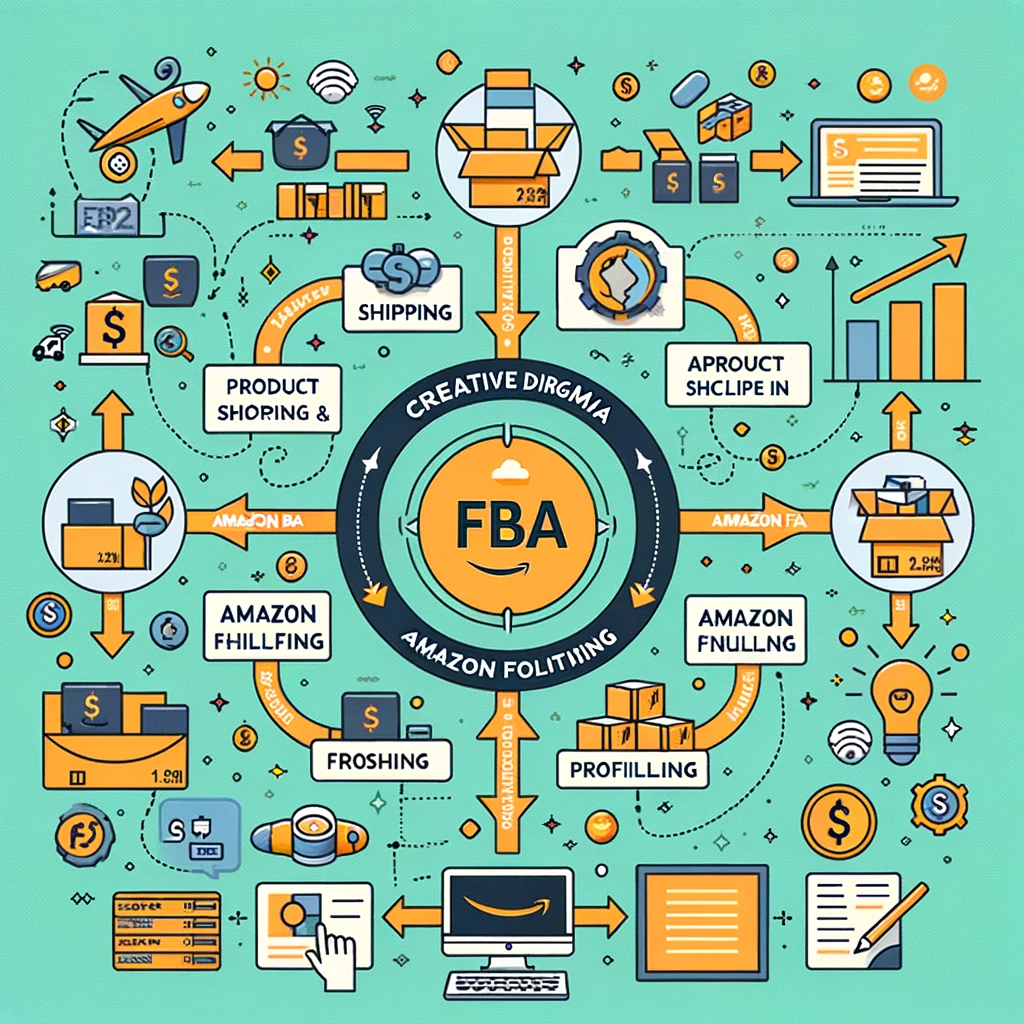Overview of Business Models
Introduction to Affiliate Marketing
Affiliate marketing is a performance-based marketing strategy in which businesses reward affiliate marketers for bringing in customers through the affiliate’s own marketing efforts. This business model allows affiliate marketers to earn a commission for promoting and selling products on behalf of other companies, without needing to handle inventory, customer service, or fulfillment. It is a popular choice for individuals looking to monetize their online presence by leveraging their audience and promoting products through unique affiliate links.
Understanding Amazon FBA
Amazon FBA (Fulfillment by Amazon) is a business model where sellers leverage Amazon’s extensive fulfillment network to store, pick, pack, and ship their products to customers. This enables sellers to reach a wider audience and benefit from the trust and convenience associated with the Amazon marketplace. By using Amazon FBA, sellers can focus on sourcing and selling products while Amazon handles the logistics of storage, order fulfillment, and customer service. It is a popular choice for individuals and businesses seeking to sell products on Amazon without the hassle of managing shipping and order fulfillment.
Business Model: Affiliate Marketing vs Amazon FBA

Difference between Affiliate Marketing and Amazon FBA
Affiliate marketing and Amazon FBA are two distinct business models that offer opportunities for individuals and businesses to generate income through online commerce. Understanding the differences between these models is crucial for entrepreneurs looking to establish an online presence and capitalize on e-commerce trends.
Comparing Pros and Cons
When deciding between affiliate marketing and Amazon FBA, it’s essential to consider the respective advantages and drawbacks of each model. Each approach has its unique set of benefits and challenges, which can significantly impact the success and sustainability of an online venture.
Advantages of Amazon FBA
Amazon FBA presents numerous advantages for sellers seeking to streamline their operations and maximize their reach within the e-commerce landscape. By leveraging Amazon’s extensive fulfillment network and customer base, sellers can benefit from enhanced visibility, trust, and logistical support.
Getting Started with Amazon FBA
As we delve into the world of online commerce, understanding the fundamentals of Amazon FBA becomes essential for aspiring entrepreneurs. From the logistical intricacies to the potential for market expansion, grasping the mechanics of Amazon FBA sets the stage for a successful venture.

How Amazon FBA Works
Amazon FBA operates on a straightforward premise; sellers send their products to Amazon’s fulfillment centers, and the retail giant takes charge of the storage, packaging, and shipment to customers upon purchase. This model grants sellers access to Amazon’s vast customer base and Prime shipping benefits, enhancing product visibility and customer satisfaction. Sellers can focus on sourcing and selling products while Amazon manages the logistical and customer service aspects, creating a seamless experience for both parties.
Fulfillment by Amazon (FBA) Explained
Entering the realm of FBA signifies leveraging Amazon’s infrastructure to scale your business efficiently. With the support of Amazon’s fulfillment centers, sellers can expand their reach without the complexities of warehousing and shipping. The seamless integration with the Amazon marketplace instills trust and reliability, crucial factors for success in the e-commerce landscape. By utilizing FBA, sellers unlock the potential for accelerated growth and customer satisfaction, elevating their online business operations to new heights.

Steps to Become an Amazon Seller
The journey to becoming an Amazon seller commences with creating a seller account and listing products on the Amazon marketplace. Once the products are enrolled in the FBA program, sellers ship their inventory to Amazon’s fulfillment centers. With the products in the FBA inventory, sellers can start selling on Amazon, harnessing the extensive resources and customer base of the platform to propel their online business. The process empowers entrepreneurs to establish a thriving presence within the Amazon ecosystem and capitalize on its unparalleled market potential.
Affiliate Marketing Program
Affiliate marketing programs offer individuals and businesses the opportunity to generate income by promoting and selling products on behalf of other companies. This can be achieved through various strategies, such as leveraging an online audience and utilizing unique affiliate links to drive sales. By participating in affiliate marketing programs, individuals can earn commissions based on their performance, making it an attractive option for those looking to monetize their online presence.
Understanding Affiliate Marketing Programs
Affiliate marketing programs are designed to incentivize affiliate marketers to promote and sell products through their marketing efforts. This is achieved by providing unique affiliate links that track sales generated by the affiliate. The affiliate is then compensated with a commission based on the sales driven through their promotional activities, creating a mutually beneficial arrangement for both the affiliate marketer and the company offering the affiliate program.

Amazon Associate Program
The Amazon Associate Program is a prominent example of an affiliate marketing program, allowing participants to earn commissions by promoting and selling Amazon products through personalized affiliate links. As Amazon’s marketplace offers a vast array of products, this program provides affiliate marketers with a diverse range of items to promote, making it a popular choice within the affiliate marketing landscape.
Getting Started with Affiliate Marketing
Starting an affiliate marketing venture involves identifying suitable affiliate programs, understanding the products or services being promoted, and devising effective marketing strategies to drive sales. This may include creating engaging content, utilizing various online platforms, and optimizing affiliate links to maximize conversions. By effectively implementing these strategies, individuals can establish a successful affiliate marketing business and capitalize on the opportunities presented by affiliate programs.
Conclusion
Pros and Cons of Affiliate Marketing
When considering affiliate marketing, it is essential to weigh its advantages and disadvantages. Some of the pros include low startup costs, flexibility, and the potential for passive income, while drawbacks may include intense competition and variable commission rates. Overall, affiliate marketing offers a viable means of generating income, provided individuals are willing to invest time and effort into establishing and promoting their affiliate ventures effectively.
Pros and Cons of Amazon FBA
Similar to affiliate marketing, Amazon FBA presents its own set of benefits and challenges. The advantages include access to Amazon’s vast customer base, efficient order fulfillment, and the potential for scalability, while drawbacks may involve increased competition and fees associated with using Amazon’s fulfillment services. Evaluating these factors is crucial in determining whether Amazon FBA aligns with an individual’s business goals and operational preferences.

